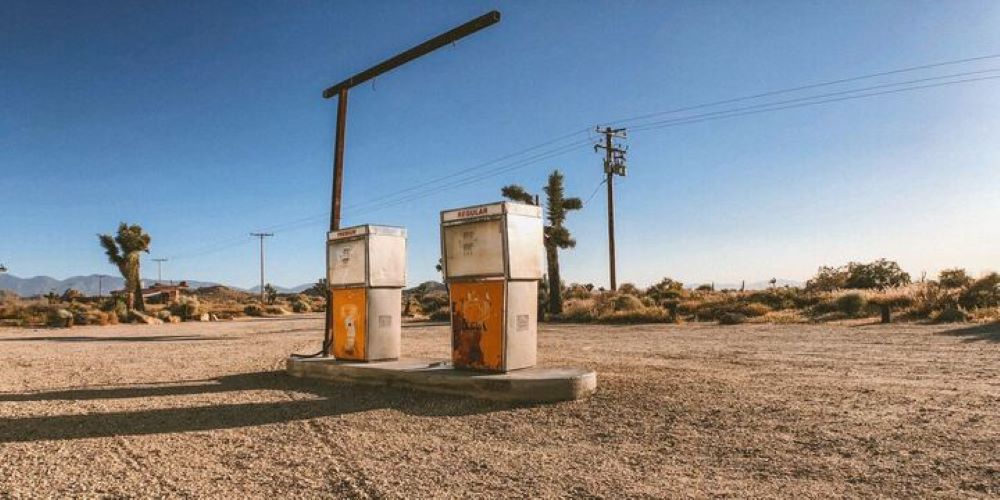Environmental activists protest outside the White House in Washington June 30, 2021, to demand U.S. President Joe Biden stop fossil fuel projects and put climate justice at the heart of his infrastructure plans. (CNS/Reuters/Evelyn Hockstein)
Ahead of Earth Day, 31 faith-based organizations announced they are ending financial investments in fossil fuels for the sake of the planet and the people and creatures who call it home.
The religious bodies divesting from coal, oil and gas companies represent Christian and Jewish traditions and hail from seven countries. They include 13 Catholic institutions, in addition to nine Church of England dioceses in the United Kingdom and six Anglican cathedrals there. Overall, they manage more than $2 billion in total assets, according to organizers of the joint announcement made on April 20.
Among them is the Carmelite Order, an international Catholic mendicant community of friars, women religious and lay members founded in the 13th century. The religious order made the commitment to divest at its 2019 general chapter.
Divestment is a concrete action in service of the church and humankind and "in line with the proposals of the encyclical Laudato Si' related to the search for an Integral Ecology," Fr. Míceál O'Neill, Carmelite prior general, said in a statement
That papal teaching document — "Laudato Si', on Care for Our Common Home" issued by Pope Francis in spring 2015 — addressed the multitude of ecological challenges facing the planet, including climate change. The encyclical, including its calls for a rapid phaseout of coal, oil and gas, has been a galvanizing message for many of the Catholic organizations and dioceses who so far have moved to end investments in fossil fuel companies and to avoid them in the future.
Subsequent messages and actions from the Vatican, including a 2020 guide on implementing Laudato Si' that recommends fossil fuel divestment and reinvestment in sustainability, have further animated Catholics to reevaluate their financial ties with fossil fuels.
St. Joseph's Parish in Ottawa decided to divest from the lone fossil fuel asset in its small fund, a pipeline company, and reinvest in a Canadian renewable energy provider. The parish plans to share the decision in its bulletin this weekend, which coincides with Earth Day, April 22.
This year, the global Earth Day celebration carries the theme "Invest in Our Planet." Proponents of fossil fuel divestment say it is a means to revoke the social and moral license for coal, oil and gas to power the world's economies and to redirect financing toward renewable energy sources.
The greenhouse gas emissions released from burning fossil fuels are the leading driver of climate change. A recent report from the United Nations Intergovernmental Panel on Climate Change, the world's leading climate science body, reaffirmed that human activity is primarily responsible for climate change. It concluded the planet has heated 1.1 degrees Celsius above preindustrial (1850-1900) levels, and is on track to reach 1.5 C in the 2030s and 2.8 C by 2100.
The IPCC report also made clear that with rapid decarbonization, including immediate deep emissions reductions, it is still possible to limit global warming to 1.5 C — considered a safer level of heating with less dangerous consequences — and that every degree of warming avoided limits the level of destruction to communities and ecosystems from stronger storms, more frequent flooding and wildfires, and longer droughts and heatwaves.

An old gas station in Lancaster, California, May 15, 2020 (Unsplash/Carl Nenzen Loven)
Meanwhile, fossil fuel companies and governments, including the U.S., continue to move new fossil fuel projects forward, with the 20 largest companies projected to spend nearly $1 trillion on new oil and gas fields by 2030, according to a 2022 analysis by Global Witness and Oil Change International.
The joint fossil fuel divestment announcement was organized by the World Council of Churches, Laudato Si' Movement, Operation Noah, GreenFaith, Green Anglicans and the Jewish environmental group Dayenu.
Many of the Anglican dioceses that were part of the announcement, including the Diocese of London, were the focus of a fossil fuel divestment campaign during Lent organized by Operation Noah, a Christian climate group. More than half the 42 Church of England dioceses in the U.K. have now made public commitments to divest from fossil fuels, as have half the Catholic dioceses in England and Wales.
The Catania Archdiocese was among seven Italian Catholic institutions to join the divestment announcement, along with the Catholic Scouting Movement of Italy.
Within the U.S., the Sisters of St. Benedict of Ferdinand, Indiana, divested, as did UNANIMA International, a women religious-led NGO that advocates policymakers at the U.N. on behalf of women, children, migrants, refugees, those who lack housing and the environment. No U.S. dioceses have publicly divested.
Advertisement
Daughter of Wisdom Sr. Jean Quinn, UNANIMA director, said in a statement that holding stock in fossil fuel companies was at odds with its mission to bring about a more just world.
"It would contradict our values to invest in fossil fuels, which are harming our planet and people in numerous ways," she said.
Organizers of the divestment announcement said they hope a recently launched survey will provide a clearer global picture on which faith-based institutions have divested and which have not.
To date, faith-based groups represent the largest share (35%) of the 1,500 divesting institutions worldwide, which hold combined assets upward of $40 trillion. That includes more than 300 Catholic organizations, according to data compiled by the Laudato Si' Movement.
[Editor's note: A previous version misstated the location of St. Joseph's Parish. It is in Ottawa, not Toronto.]








